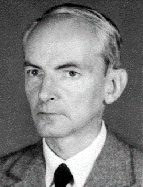

The matter of the emergence of modern science is present in his 1958 study of Pierre de la Ramée (1515-1572), in which he showed that this scholar developed a utilitarian and empiricist philosophy—linked to his Calvinist religious convictions—based on the idea of a "natural reason" adapted to nature and the defence of "philosophical freedom". By associating with tradesmen and visiting workshops, Ramus united the tradition of scholars with that of the craftsmen. Ramism, which soon spread to the reformed countries, favoured the transformation of the mediaeval sciences into modern experimental science (Humanisme, science et Réforme…, 1958, pp. 1-2, 91-96). In "Religion and the Rise of Modern Science" (1972), a compilation of his Gunning Lectures at the University of Edinburgh (1969), Hooykaas dealt with the evolution of the relationship between reason and experience, showing how the emergence of modern science in the 16th and 17th centuries implied an overcoming of the Greek heritage, which included a rationalist philosophy and the development of mathematics, but also a worldview characterised by the deification of nature, the underestimation of human capacity, and the depreciation of manual labour. He believed manual labour should be valued, with a humbler conception of human reason, while at the same time affirming human capacity to intervene in nature and put it at our service. The new mentality associated with the beginning of modern science, that of cooperation "between head and hand," was favoured by the emancipation of the bourgeoisie during the Renaissance. This was exemplified by reformed cities such as Nuremberg, Antwerp, London, or Amsterdam—where many of the bourgeois were craftsmen and collaboration between scholars and practical men was promoted, and this favoured the experimental method ("Religion and the rise"…, 1972, p. 92; "Science in Manueline Style"…, 1981, pp. 395-398; "Selected Studies"…, 1983, pp. 19-31; "The Rise of Modern Science…", 1987/2003, pp. 27-28). This new attitude received positive sanction from reformed religious thought, which valued manual and experimental labour. Dialoguing with the so-called Merton thesis (1938), which linked English puritanism to the tendency towards scientific and experimental knowledge—a thesis inspired by Max Weber—Hooykaas corrected it by stating that scientific research was favoured in the following ways: by the belief in the principle that all actions of human life are done "for the glory of God" (which includes a labour ethic), Calvin's "theory of accommodation" (which favours a non-literal interpretation of the Bible as far as physis is concerned), the Protestant doctrine of the "universal priesthood of believers" (which eliminated the mediation of ecclesial authority), as well as the belief that God reveals himself to men in two books—the Bible and Nature (Idem, 1972, pp. 98-134). As he would later say, man's intervention in nature was favoured by the mechanistic perspective, which developed in opposition to the organicism dominant among the scholastics, for which natural beings are irreproducible by artificial means—in other words, the attitude of coercive empiricism is favoured by mechanicism, which progresses clearly between the end of the Middle Ages and Newton (Idem, 1987/2003, pp. 29, 30).
This work is financed by national funds through FCT - Foundation for Science and Technology, I.P, in the scope of the projects UIDB/04311/2020 and UIDP/04311/2020.
